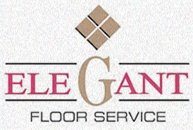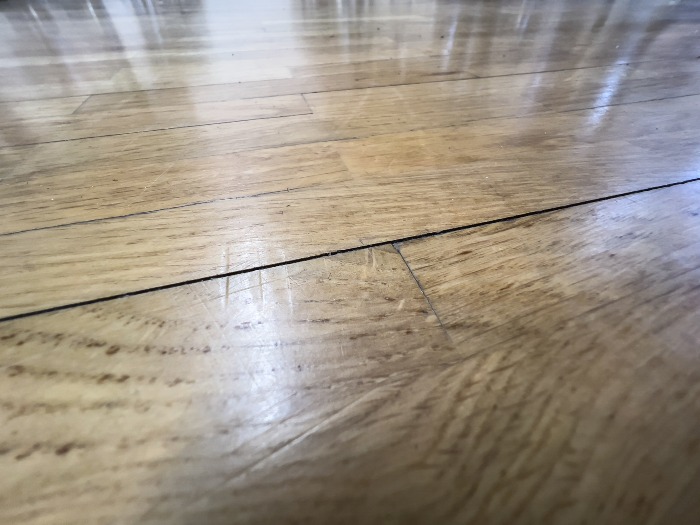5 Tips to Prevent Hardwood Floor Cupping This Summer
Homeowners take pride in their wood floors. Let’s face it, no matter if you installed a light-colored oak hardwood floor, a darker-toned cherry wood floor, or something in between – like hickory – you want your floors to look good!
It’s surprising how quickly some people can point out a hardwood floor that is not flat, and if you’re not careful when choosing a wood floor installer, you may end up with a cupped hardwood floor. We’ve outlined five tips to help you prevent your floors from cupping this summer. But first, we must understand what it means to have “cupped floors.”
What Is Cupped Hardwood Flooring?
Cupped hardwood flooring occurs when there is a change in moisture levels in the air. How do you know if your floors are cupped? First, look to see if the sides of the flooring are higher on the ends of the boards (where pieces connect) than in the center of the board. If the floorboard looks concave, you have cupped hardwood floors.
Think of it like placing a small strip of water onto a small drop of water – the paper will curl up and away from the water. The same thing happens to wood flooring.

What Causes Hardwood Floors to Cup?
Cupping in hardwood floors is caused by a change in moisture levels in the air. However, raised moisture levels are not the only cause of cupping, they can also be caused my lowered moisture levels depending on the type of hardwood floor installed in your home.
Solid wood floors cup as a result of elevated moisture saturation in the air. For most solid wood floor species, noticeable cupping can be visible after just a few days. Unlike solid hardwood floors, engineered wood floors cup when moisture levels are reduced. Since engineered wood flooring is created using two layers of wood, the face of the boards will begin to cup faster (roughly 10 times faster) than its backer layer.
5 Tips to Prevent Your Hardwood Floor from Cupping
During the summertime, humidity levels tend to be higher than during the winter, when indoor moisture levels are often dried out due to your heating system. To help protect your hardwood floors against cupping, follow these 5 tips:
- Only install acclimated wood floors. It’s best to manufacture your hardwood floors in the same climate as they will be installed in. This helps prevent cupping because the hardwood floors will be acclimated to their final destination’s humidity levels and help protect against cupping throughout the year.
- Fasten floor boards properly. Wood expands and retracts throughout the seasons, so ensuring they are properly installed and fastened can take advantage of their elasticity and prevent cupping during the summer.
- Install a whole-home humidifier. Whole-home humidifiers work in conjunction with your HVAC system to monitor and create optimal humidity levels in your home. These systems can control the moisture level throughout your entire house and help protect against hardwood floor cupping in rooms with wood floors.
- Never damp mop a wood floor. When cleaning your hardwood floors be sure to use as minimal water as possible, especially during the summer. High humidity levels can cause the water to evaporate slower and cause your hardwood flooring to absorb more water than usual during mopping.
- Run vents as much as possible. Hardwood floors are a popular flooring choice in kitchens and bathrooms. To help protect against cupping, run stove vents or bathroom vents while cooking or showering for more than 10 minutes.
Hardwood Floor Restoration in Maryland, Virginia & Washington, DC
Elegant Floor Service is the premier choice of hardwood flooring experts in the Maryland, Virginia, and Washington, DC areas. Our wood floor experts are industry trained and can answer any of your hardwood flooring questions.
For a free estimate or to schedule hardwood floor restoration in the DC metropolitan area, contact us today!
““
Blog Categories
Archives
- January 2026 (1)
- October 2025 (1)
- November 2024 (5)
- July 2024 (2)
- April 2019 (6)
- April 2017 (1)
- November 2016 (1)
- October 2016 (1)
- September 2016 (1)
- August 2016 (1)
- July 2016 (1)
- June 2016 (2)
- April 2016 (1)
- March 2016 (2)
- February 2016 (1)
- January 2016 (1)
- December 2015 (2)
- November 2015 (1)
- October 2015 (1)
- September 2015 (1)
- August 2015 (1)
- July 2015 (1)
- June 2015 (13)
- May 2015 (30)

2322 Montgomery St. Silver Spring, MD 20910 Proudly Serving: Washington, DC, Maryland (MD), Virginia (VA)

